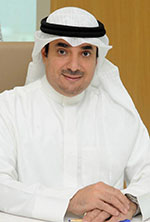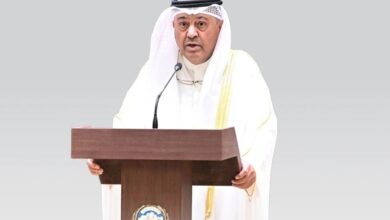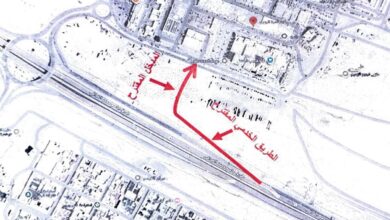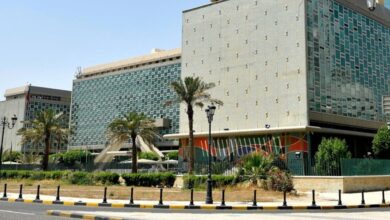The importance of hosting international courts and organisations
Kuwait can play a important role promoting peace and understanding

By Tareq Yousef Alshumaimry
Hosting international organisations is a powerful tool for foreign policy in an increasingly interconnected and interdependent world, and the role of international organisations in their host countries cannot be overstated.
It facilitates joint diplomatic cooperation, encourages diplomatic solutions and addresses global challenges that transcend national borders. By strengthening cooperation and diplomacy, many global challenges such as climate change, terrorism, epidemics and wars that are difficult for any single country to address alone are addressed.
International organisations provide a platform for countries to cooperate, exchange experiences and find common ground through dialogue and negotiation. Countries can also resolve disputes peacefully through international courts. For example, the United Nations acts as a centre for states to express their concerns and seek consensus and work towards common goals.
Countries that have headquarters for international organisations have a comparative advantage in pursuing their political goals in addition to benefitting from human capital. International organisations bring together professionals, scientists, technocrats and diplomats by organising the best human capital from different countries, and they promote decision-making processes.
The Hague, the capital of the Netherlands, is known as the international city of peace and justice. It’s a global hub for international law and arbitration and has been a place for countries to gather for international courts and peace conferences for over a century.

The Hague is the home of the United Nations International Court of Justice as well as the Permanent International Court of Arbitration. The Hague is also a leading centre for international conferences on international peace and justice. The Hague hosts approximately 38 international and regional courts and organisations, making it a centre of great importance and international impact.
The Hague has played an important role by hosting international courts and tribunals, including the International Court of Justice, the Permanent International Court on Control, the International Criminal Court, the Court of Lebanon, the Court of Yugoslavia, as well as organisations such as the Organisation for the Prohibition of Chemical Weapons and some departments of the North Atlantic Treaty Organisation for Security and Cooperation in Europe.

Similarly, Geneva in Switzerland is one of the four major offices of the United Nations where numerous different UN agencies have a joint presence. Some prestigious organisations such as the International Labour Organisation,(ILO) the International Organisation for Migration(IOM), the Red Cross (ICRC) and the World Health Organisation (WHO), gives it a pivotal role in the affairs of these organisations as well.
Another shining example is Vienna in Austria. Vienna is one of the four headquarters of the United Nations, along with New York, Geneva and Nairobi.

The Vienna International Centre (VIC), commonly known in Austria as “UNO City”, was opened in 1979 and is leased for a symbolic annual rental sum of one Austrian schilling (equivalent to seven euro cents) to the United Nations for 99 years.Around 5,000 employees from more than 150 countries work for the organizations based in Vienna.
The United Nations Office at Nairobi (UNON) the capital of Kenya, is one of four major United Nations office sites where numerous different UN agencies have a joint presence. Established in 1996, it is the UN’s official headquarters in Africa.
The United Nations Office at Nairobi also hosts the global headquarters for two programmes: the United Nations Environmental Programme (UNEP) and the United Nations Human Settlements Programme (UN-Habitat).
In November 2004, the United Nations Security Council held a rare session at Nairobi to discuss the armed conflicts in southern and western Sudan that constituted a phase of the Second Sudanese Civil War.

Also part of the UN Secretariat are the Regional Economic Commissions in Addis Ababa, Bangkok, Beirut, Geneva, and Santiago. The Economic and Social Commission for Western Asia (ESCWA) supports its 21 member States in their efforts to ensure prosperity and equality. By analysing regional and national economic, social and environmental trends in the light of global United Nations agendas.
ESCWA provides Arab countries with policy recommendations that build on a thorough analysis of facts and commonalities. It also underscores the benefits of integration and creates regional public goods, including knowledge, data, tools and capacity. The shared language, culture and aspirations of the people of the Arab region form a solid foundation to tackle transboundary challenges through collective action at the national, regional and global levels.
Hosting a regional organization like ESCWA can enhance the country’s prestige including building the capacities of the local population, improving infrastructure, sharing cultures and educational opportunities. It can develop a talent pool that can greatly contribute to the host nations prosperity.
Kuwait on the other hand has been granted a high international status as a humanitarian centre. Kuwait hosts a number of headquarters of international and regional organisations, where there are approximately 120 embassies and international organisations in the State of Kuwait, such as the International Committee of the Red Cross, the United Nations organisations, the North Atlantic Treaty, the Asian Cooperation Dialogue, the Arab Fund for Development and the Arab Cities Organisation.
Kuwait has gained a reputation not only for its role as a mediator of peace but also as a neutral country with ingenuity and diplomatic experience. Kuwait has maintained a policy of dialogue and diplomacy since its independence and is ideally suited to host international organisations that will help promote peace and stability as well as in resolving conflicts and to promote understanding of the role of international organisations and to emphasise their importance.
The presence of international organisations within a country is not only about prestige but also about active participation in global affairs. These international organisations and courts form policies and promote peace and improve life. Whether they are affiliated with the United Nations, the World Bank or specialised agencies their presence contributes to a more interdependent and harmonious world.
These organisations function under the Vienna Convention enabling them to carry out their duty without fear or coercion by the host country.Cooperation transcends borders. Hosting international courts and organisations is a testament to the state’s commitment to collective well-being and respect for international law.

Tareq Yousef AlShumaimry, served as Chairman of the Finance Committee and Chairman of the General Budget Committee of the Permanent Court of Arbitration in The Hague (PCA) and an observer in the Administrative Council of the Court and the Consular at International Court of Justice (ICJ) and the Embassy of the State of Kuwait in the Netherlands during this period from 2013 to 2020.
Email: tareq@alshumaimry.com















